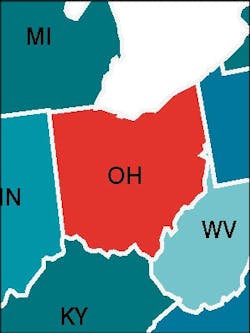The Impact of Shop Registration Regulations
Some shop operators make significant monetary investments acquiring proper training, equipment, licensing, permits and insurance to operate top-notch, law-compliant facilities. But some owners don’t, and it creates an unfair advantage, says Joe Sanfillipo, past president and current board member of the Automotive Service Association of Ohio (ASA-Ohio).
There’s a proliferation of repairers that operate out of warehouses or backyards with no business licenses or permits, lack basic environmental practices, don’t pay taxes, and rarely train employees, he says. Those shops are capable of undercutting prices, and it’s tough for respectable operations to compete with shops that aren’t meeting the same business standards.
It’s not a level playing field, and it’s been a growing problem in recent years, he says.
A new bill was recently proposed in Ohio to curb the problem. The bill—introduced by Ohio state Sens. Edna Brown (D-11), Tom Patton (R-24) and Peggy Lehner (R-6)—proposes development of a mechanical shop registration program.
Sanfillipo says the legislation has significant support from shops throughout Ohio, as well as ASA-Ohio and ASA National, and he’s “optimistic and confident” the legislation will pass.
Ohio is the latest U.S. state to propose a shop registration program, but it’s not the first. States such as Florida, California and Michigan have implemented similar concepts, but states like Michigan haven’t experienced much improvement, says Bob Redding, Washington, D.C., representative for the ASA. But he believes Ohio will have a more successful outcome because the bill proposes a more robust plan compared to others.
It’s an issue that repairers nationwide should monitor, Redding says, because its impact could set a precedent for other U.S. states to follow suit.
“ASA has held Ohio’s program as the template of what we would encourage other states to take a hard look at and consider. It has the structure to work in any state,” Redding says. “There is a lot of interest in this nationwide, more now than I’ve ever seen, and this will be closely watched by the rest of the country.”
A Level Playing Field
If passed, the Ohio bill would force shop owners to pay a $200 fee to register with the Ohio Motor Vehicle Board. Shops would also be required to adhere to certain operational standards, such as maintaining proper equipment, licensing and insurance, and compliance with all Occupational Safety and Health Administration (OSHA) and Environmental Protection Agency (EPA) regulations.
Sanfillipo says the goal of the legislation is to protect consumers by providing assurance that they’re doing business with quality shops. In addition, it would “level the playing field” among repairers by verifying that all the things quality shops do to operate properly would be replicated by every facility in the industry.
Sanfillipo says that exact goal was accomplished when Ohio implemented its registration program for collision repair shops roughly 10 years ago.
“It raised the bar for business, made shops accountable, and ensured everyone is playing by the same rules,” he says. “There have been a couple instances when shops have been forced to close because they refused to comply.”
Sanfillipo says both Ohio’s collision registration program and proposed mechanical program are modeled after Florida’s shop registration program, which played a significant role in reducing the number of consumer complaints against Florida’s automotive industry since implementation in the early 1990s.
‘It’s Not Enough’
Some repairers, however, aren’t sure the idea is all that beneficial. They’re concerned that the registration concept doesn’t go far enough to resolve the issues the industry needs to address because some state programs don’t include certification testing, proper oversight, or direct input from industry professionals regarding structure or enforcement.
For example, Gene Morrill, owner of Certified Automotive Specialists in Glendora, Calif., says California’s shop registration program was a step in the right direction, but not sufficient to actually create a better industry. He believes the program only generated a list of who is supposed to be working on cars and who is not; it doesn’t necessarily ensure shops operate at any certain caliber. Morrill suggests the industry needs development of a mandatory professional certification and licensing initiative.
Redding acknowledges those potential downfalls, but he asserts that’s due to the implementation strategy, and Ohio will have a more positive impact. Unlike others, Ohio has a formalized oversight board with repairer involvement and input, along with clear oversight policies and enforcement staff.
